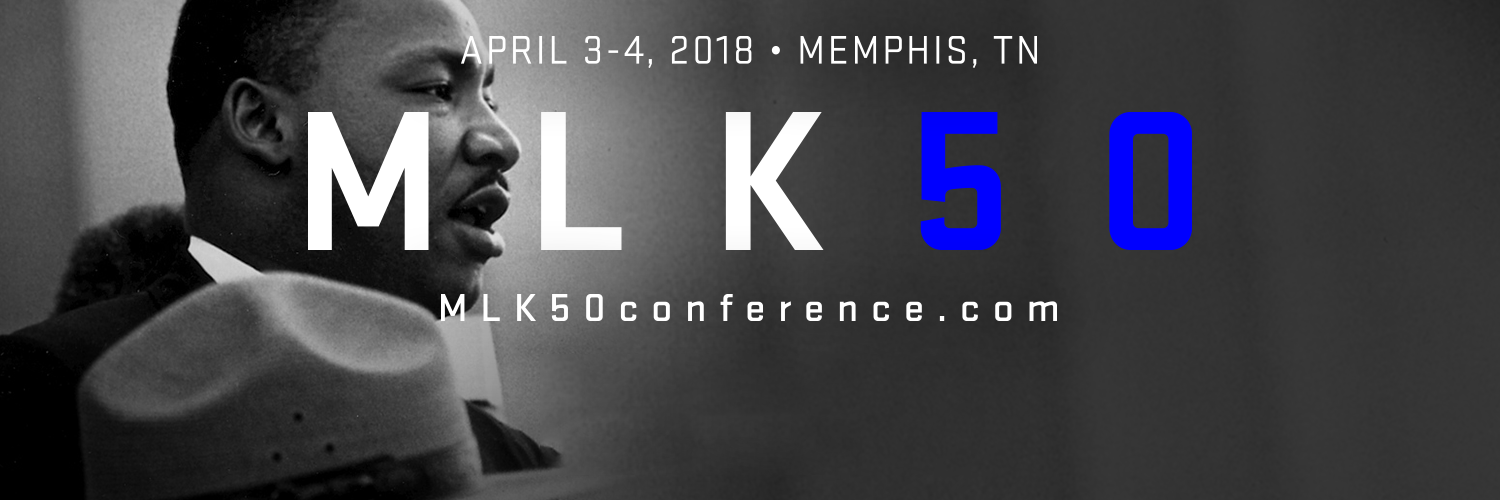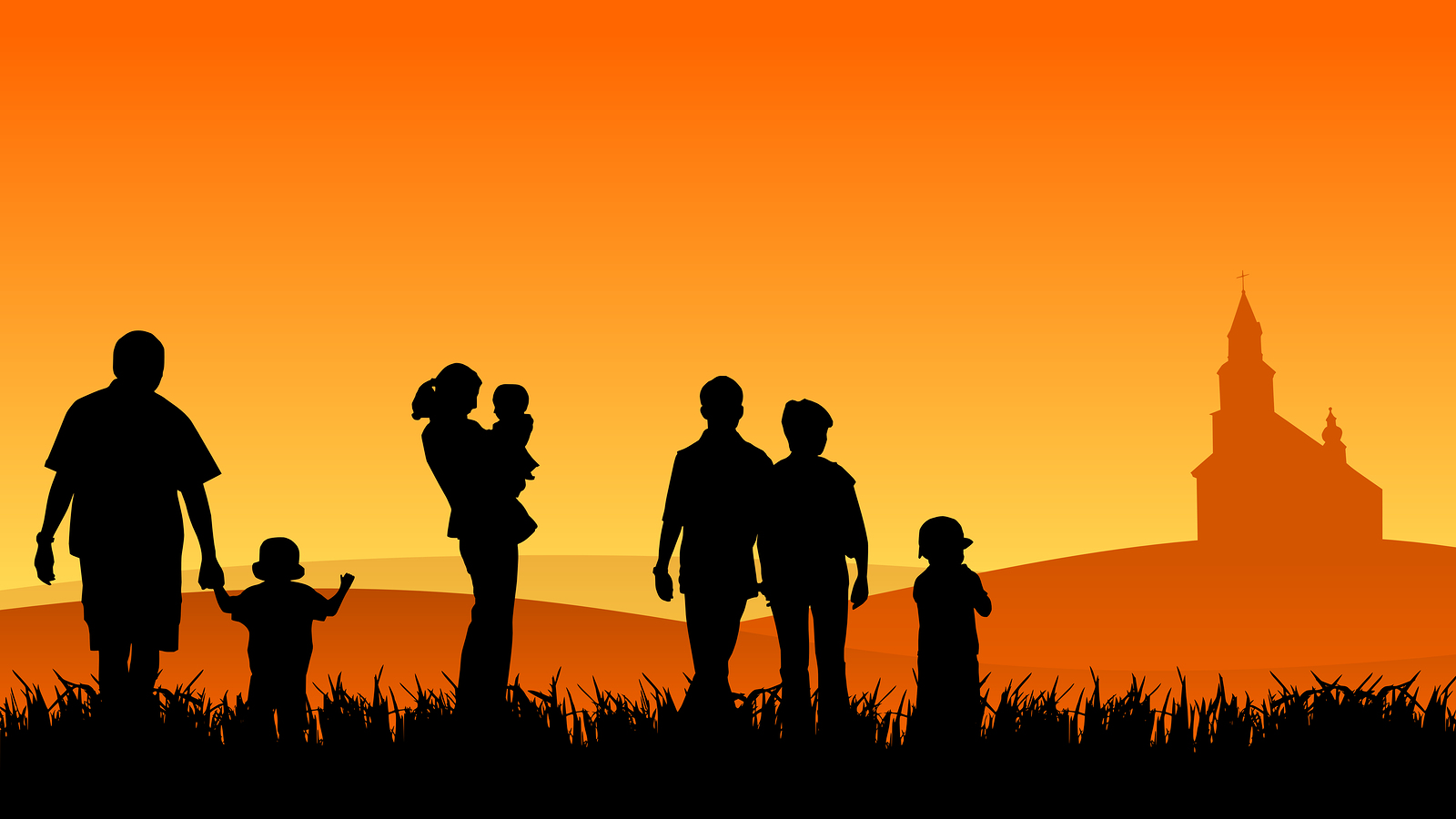
by Caleb Moore | Jul 17, 2018
I can still recall the way the sun would set after a long day at church camp. Everyone would be exhausted physically and emotionally after endless hours playing and ministering.
The sun would fall behind the hills and you knew that tomorrow would be another day full of ministry and salvations. For many Christians, summer camp is where they first met Jesus. Although we have so many great memories from those past years, summer church camp has been changing.
Recently, I spent a week speaking at a church camp in Arkansas, and during that week, I would spend my mornings visiting and getting to know the students. The conversations began to take on a common theme.
Almost every kid I spoke to came from a broken family. Some of the students came from good Christian homes, but for the most part, all I heard was one heartbreaking tale after another.
One middle school girl began to tell me how her father had signed over custody and wanted nothing to do with her. Another young lady told me how her family constantly shamed her because of her weight.
Several students even told me how they had been contemplating suicide before coming to camp because their home life was such a disaster. These conversations used to be the exception, but now they have become the norm.
I spoke with the camp leader, and he confirmed what I had been hearing. He told me they used to have a problem with kids getting homesick, but now their biggest issue is kids not wanting to leave.
Oftentimes, kids will try to hide in the cabins when it is time to go home because they are so afraid to leave. Camp is the only place where they have received love and three meals a day.
Church camp has become a safe haven during the summer for those who have found themselves in horrible situations at home. In spite of the increasing need for these kinds of healthy escapes, funding for camps is decreasing around the U.S. Each year camps have to make things work on smaller budgets and fewer volunteers.
When you are considering what to do for your vacation next summer, I encourage you to consider giving a week to pouring into students who really need your help. If we want to make the future a better place it begins by loving on those who feel trapped and abandoned at home.
In spite of how tough it is to grow up in today’s environment, God still does mighty work in the hearts of those students and gives hope to the hopeless.

by Caleb Moore | May 16, 2018
My last two articles have been dealing with the issue of understanding the worldview and arguments used by the LGBTQ community. I never want to address these subjects as though I am giving Christians ammo to go and blast the unbelievers. Instead, my hope is that, by understanding the issue better, you might be more courageous in your love and compassion toward those with an opposing worldview.
The problem we face does not simply lie fully on the shoulders of those with whom we disagree. Perhaps some of the blame falls on us as believers as well.
The church can often be selective in which sins we overlook and which sins we publicly protest. We might be extremely vocal on issues like abortion and gay marriage, yet some tend to give little voice towards sins like gluttony, adultery, greed and envy.
Scripture does not teach that all sins are the same, and I agree that we should be vocal on issues as important as those, but we should also be just as involved in dealing with the sins of adultery, divorce and greed that exist within the church. When we focus all our attention on the sins of the world and not the sins within the pews, the outside world looks at us as hypocrites.
We should not be surprised when lost people act like lost people, but it should convict us when believers act frequently like unbelievers. This is important because, if I am going to be consistent, I must deal with the sin in my life with the same fervor that I address the sins of the world.
I have heard many sermons in my time where atheists or members of the LGBTQ were mocked or used as a punch line. My stomach would sink thinking of what message might be sent to those struggling with these sins if they happened to be sitting among us. Would they feel like the church was a place of grace where they could come and seek counseling or wisdom on an issue if they had already been maligned from the pulpit?
Perhaps, in response to an ever-changing world, we have built little communities that are safe from any conflicting ideas. We have our own music genres, clothing stores, movies and even video games. It’s like we created invisible walls where Christians can live without ever engaging a lost person. If we know our crowd is predominantly Christian it’s easy to get away with making fun of the lost world on a regular basis. This creates an “us versus them” mentality instead of recognizing that they are not the enemy but merely victims of the enemy.
A friend of mine who is a new believer recently went to a woman’s conference where someone spoke of a lesbian she had met in a mocking and graceless way. This confused her because she thought the church was supposed to be a place where the sick found love and truth.
If we truly want to make some ground in helping the LGBTQ community it begins by getting to know them as an individual instead of just as a problem to be shouted down. Be careful of how you joke with your friends on this subject. We wouldn’t make fun of someone struggling with divorce or alcoholism and the same compassion should be shown to those struggling with same sex attraction. Most of the things I know about this community have not come from a book but from deep conversations with those who live that lifestyle.
I have pastored places where gays and lesbians were welcomed with open arms, yet we never had to water down the truth. I had planned for weeks to teach on sexuality one Sunday when a person whom I knew identified as gay walked through the door. I’m thankful I did not feel the need to change my sermon in order to make them feel comfortable. I taught simply what Scripture says, and sometimes that makes people uncomfortable.
I know Scripture makes me uncomfortable whenever it talks about my sin. Yet I tried to hold high the light of truth, grace and hope that is found in Jesus. I shared my own imperfection and struggles and let them know that the only thing that separates my sin from theirs is that I have received grace and forgiveness, and Jesus offers that to everyone regardless of what their past looks like.
To sum this up, I suggest we simply take the words of Paul seriously when he tells us in Ephesians to, “speak the truth in love.” Instead of avoiding those who have that sin in their life, invite them over for dinner. Show them hospitality and compassion, and look for teachable moments where you can share with them the truth and freedom found in Jesus.

by Caleb Gordon | May 9, 2018
Over the past two years, I have been thinking — and sometimes that is a dangerous thing to do. I’m really trying to flesh this thing out. It’s been something that I’ve seen in my own life, and I’m struggling with it. So hang with me as I write this out.
I know so many men and women who are a part of multiple Bible studies. They go to studies on Sunday mornings, Wednesday nights, and some even go to another midweek study. women’s Bible studies, men’s Bible studies, couples Bible studies – the list goes on and on. There honestly is no shortage of Bible studies we can attend.
The thing that blows my mind is that you’d think that with all of those Bible studies that we all are involved in and all of those hours we spend together, pouring over and talking about the Scriptures, we’d begin to see some type of really big change in our communities because of it, right? Well, why then are we not seeing a difference? Let me explain further.
A majority of people who attend church are just as angry and bitter as lost folks. We have husbands and wives who are not loving each other like Christ loves the church. We have children who are disrespectful to any type of authority that it’s just sickening. All the while, we have so many of these people ‘plugged into’ a Bible study of some type. So what is the problem?
The problem is not needing Gospel-centered Bible studies; it’s that we are replacing action with consumption. We think that if we just sit for 30 minutes to an hour listening to the truths of Scripture then that should be enough. Check this verse out:
“So whoever knows the right thing to do and fails to do it, for him it is sin” James 4:17.
If you know that you as a husband should be loving your wife as Christ loves the church and you’re not, you are actively living in sin. If you know that loving your enemy is a mandate that was handed down from Jesus Himself and you do not, then guess what? You’re living in sin.
What is happening is that we are living in a replacement mentality. We are actually replacing DOING what God has called us to do for just reading and studying about it and thinking that is good enough. We spend tons of time sitting in group Bible studies talking about how we should live as Christ followers. What would happen if we started to have Bible DOINGS and actually living out the mandates of Christ?
Let me give you an example.
What would it look like if we, instead of doing another Bible study over “Not Being Ashamed To Share The Gospel,” actually went out to the local public square and actually share the Gospel? Engaged people and talked to them one on one.
What would it look like instead of having another couple’s Bible study that you planned a couples MISSION trip in your city or state to go and actually do something together as a couple? If couples focused on a COMMON MISSION you don’t have time to fight. If you’re both LIVING THE GOSPEL OUT TOGETHER, you won’t argue. You’ll find ways to help and encourage one another.
Please don’t get me wrong. I’m NOT saying stop doing Bible studies. What I AM saying is that if you’re studying the Bible and you’re NOT DOING what you are studying then there is a problem. I’m saying that if you do the study, it should not just get a head nod, an amen and that’s it. Studying the Bible should push us to action, not just agreement. If we AGREE with what we are studying then it should result in action.
Stop just agreeing and start doing. Move in a direction and get out of your comfort zone.
Stop just HAVING BIBLE STUDY and start BIBLE DOING!

by Michael McAfee | May 2, 2018
Have you ever wondered “What does the ‘Southern’ in Southern Baptist mean?” It is a good question!
After all, the sun never sets on Southern Baptist missionaries planting churches and making disciples all over the world. We are truly a global denomination, working in joyful cooperation with like-minded churches and ministries in every continent. But for a denomination with such proud inclusivity today, our past has some skeletons in the closet.
The Southern Baptist Convention (SBC) was founded as a sort of church split by an entire denomination over the issue of slavery. Baptists in the south split from Baptists in the north to found a denomination that would allow the sending of missionaries who owned slaves.
Since that time, the denomination, as a whole, has taken key steps in overcoming our racist roots. In the 1995, we, as a convention, denounced the racist actions of our denominational fathers. In 2012, Fred Luther became the first African-American man elected president of the SBC. Just last year, the SBC denounced the Alt-Right (after an embarrassing first vote fail).
And a few weeks ago, an SBC entity (the Ethics & Religious Liberty Commission) partnered with an organization that has a strong SBC presence (The Gospel Coalition) to put on a conference focusing on racial issues in the church. The backdrop for the conference was a man who himself was familiar with controversy surrounding the issue of race.
On April 4, 1968 the Reverend Dr. Martin Luther King, Jr. was shot at the Lorraine Motel in Memphis, Tenn. The night before his assassination, Dr. King gave a speech in Memphis to inspire a group of sanitation workers that the struggle for Civil Rights was costly, but right.
He inspired them by preaching the parable Jesus taught about the Good Samaritan. He pointed out that the Priest and the Levite who passed by could possibly have thought, “Perhaps the robbers are still nearby. If I stop to help this man, what will happen to me?” But the Good Samaritan came and could have acknowledged the danger but reversed the question, “If I do not stop to help this man, what will happen to him?” Dr. King would finish this inspiring speech, on the night before his murder, by comparing himself to Moses on the mountaintop.
“We’ve got difficult days ahead. But it really doesn’t matter to me now, because I’ve been to the mountaintop. Like anyone, I would like to live a long life. But I’m not concerned about that now. I just want to do God’s will. And He has allowed me to go to the mountain. And I’ve looked over, and I’ve seen the promised land! I may not get there with you, but I want you to know tonight that we as a people will get to the promised land! I’m not worried about anything. I’m not fearing any man! Mine eyes have seen the glory of the coming of the Lord!”
These words have haunted me since I first read/heard them. And in Memphis last month, these words shaped the conversation on race for some 4,000-plus gathered.
More than 25 percent of the conference was non-Anglo, and about half of the stage personalities as well. This was a conference that focused on the Gospel of Jesus Christ and asked the question how should thoughtful Christians in our world today respond to the issue of racism?
Dr. Russell Moore of the ERLC gave the opening keynote, calling us to sacrifice our preferences for the sake of unity in our churches. “If we have to change our worship styles, let’s crucify our worship styles. If God’s way upsets our political alliances, let’s crucify our political alliances. To be a Gospel people means we do not seek cheap reconciliation, but a cross reconciliation.”
Throughout the conference, a diverse group of speakers stepped to the platform to speak, sing and pray. The diversity was not merely ethnic, but generational, geographical, occupational and denominational. The conference modeled the unity and racial reconciliation it called churches and Christians to embrace today.
Southern Baptists in the state of Oklahoma need to embrace this today. God has used our state convention and churches across Oklahoma to see a multitude of persons reconciled to Christ, and we all have now been given the ministry of reconciliation. And that includes not merely being reconciled to God, but reconciled to one another.
There are some who would tell us that race is an issue that is being stirred up today in order to score political points. Shame on me and shame on us when we buy into that narrative. Race has been an issue since Genesis in every civilization. It would be hubris for us to claim that we are beyond race issues today.
The Church of Jesus Christ should be leading the culture in seeking racial reconciliation. This begins by repenting for our failures and by acknowledging the struggle of non-white brothers and sisters in Christ as well as our neighbors who do not know Jesus.
Some will tell us racial injustice ended a generation ago. Yet these same people will often speak of how following the Bible’s plan for families will impact your family legacy for generations to come. It is inconsistent to claim that the proper use of Scripture can have generational impact for good but to deny the past misses of Scripture matters today.
In 2012 in New Orleans, Southern Baptists voted to add an optional descriptor of churches in our convention “Great Commission Baptists”. This is truly what unites us. A laser-focus on our Savior’s final marching orders to his people. We are called to make disciples of all nations.
There will come a day when the Great Commission is complete. On that day we will worship around the throne with people from every nation, tribe, and tongue. When we see Him as He is, there will not be a worship style, political alliance or tribal identity of any kind that prevents us from worshipping the King of Kings together. Let’s not wait for The Day to seek for unity. Let us each confess our own fears of what unity would cost us and crucify our own comforts for the sake of true Gospel unity in our churches today.

by Brian Hobbs | Apr 4, 2018
Years ago, an emphasis was started encouraging people to “Thank a veteran” for our freedom and the very country we enjoy. Today, there is also another group I believe we can thank: teachers.
With education and schools in the news and focus, we are reminded that education matters, that teachers matter a great deal.
Think about it. If you ask a person about their favorite teacher growing up, you see their eyes light up with enthusiasm. If you ask a person who are some of the people who have had a large impact on their life, you almost always hear that person mention a teacher.
In God’s Kingdom, teachers have a beloved and special role. Jesus Himself was repeatedly referred to as “Rabboni,” teacher.
For most students in Oklahoma, their formal education happens through the public schools. Thankfully, there are many godly teachers and leaders within the schools trying to exert Christlike influence as much as possible. To these people laboring in the public schools, we express our deepest thanks!
For others, their formal education is happening at a private/Christian school. At these places of education, we have many godly teachers and leaders trying to share the Gospel and inculcate a Christian worldview in the next generation. To Christians laboring in private schools, we say our deepest thanks!
Still others receive their education at home. Christians around the country are increasingly choosing homeschool. Many parents are sacrificing much to be able to offer a quality education to their own children, and to these people laboring in home schools, we say our deepest thanks!
Beyond these simple but inadequate words of gratitude, there are other ways to express thanks to teachers. Here are a few ideas:
- Pray for them. Nothing is more uplifting than to know someone is praying for you. Take time today to pray for teachers you know—by name—lifting them up to the Lord.
- Write notes of encouragement. Receiving hand-written notes is a lost art. Today you could write a hand-written note to the teachers in your life, telling them you appreciate them.
- Send a gift. Students used to bring an apple for their teacher. Today, teachers might appreciate an Apple iTunes gift card or something useful.
- Organize an event. Many churches hold an annual banquet of appreciation for teachers. Whether a big event or small, see how your Sunday School class could do an event for teachers (whether public, private or homeschool).
- Offer to help. Gary Chapman’s indispensable book, The Five Love Languages, says “acts of service” is a great way to show appreciation. Think about how you, as a volunteer, can support teachers.
Oklahoma is blessed with many people working in noble professions—pastors, doctors, construction workers, military personnel, and the list goes on. Near the top of that list, we recognize teachers, whose service and work inspires us each day.
May God bless you for your work, and we say “Thank you!” today to our teachers!

by Caleb Gordon | Mar 1, 2018
What would it look like if people put just as much (if not more) energy, effort, resources and time into their local church as they do for other groups and organizations? What would our churches look like?
I believe in the church. I firmly think and believe what we are doing in our churches will matter in 10,000 years. The message that we carry is the most powerful message the world has ever seen. Yet, when it comes to people actually being committed to the church, it seems as if we BELIEVE (by our actions) that the church really is not important whatsoever. Look at the stats.
Fifty-one percent of churchgoing (professing) believers attend church ONCE A MONTH! And do you know what the number-one reason is for not going to church? “Because it’s hard to get there in the mornings.”
I’m just going to say this: We do what we want to do. If you wanted to get up and go hunting or fishing you would bust your backside to make that happen. I know men who get up at 3 and 4 a.m. to go do some type of hunting and fishing. Yet we struggle to make it church by 10:30 AM? I’m not buying it.
Christians today are not buying into the message of what the church is. Why? Well, there are a ton of possible reasons, but I’ll cut through all of the red tape and just say this: I think we don’t love and believe the message of Jesus. We do not LOVE the idea of gathering and worshiping with fellow believers. How can I say that? Because we do what we love to do.
We, as Christians, are a part of so many other organizations and activities, and we give our time and our creativity and our resources to make those places successful. What would those activities and organizations look like if we only showed up once a month? I think you can answer that.
So my next question is this: why do we only want to be a part of the church ONCE a month? Do you believe in the message/mission of your church? If the answer is yes then why not go all in at your church?
What would your church look like if you dedicated a good chunk of your time, money, creativity and self to make that place successful? Sometimes the church has some cranky stuffy folks in it. But so does Rotary and the Scouts, but we don’t give up on them. We keep pressing forward.
Like I said before, what we are doing in the church will matter in 10,000 years. If you don’t like how things are going at your church, GET INVOLVED AND HELP MAKE IT BETTER! They would love to have your input. They would love to get you on a committee. They want to hear your ideas.
If you’d like to see a study or activity happen then tell someone. Or even better, just jump in and start putting something together. GO ask your pastor, where can I get plugged in. What can I do? Pastors LOVE those questions.
I think that if we saw Christians who were members of our local churches start going all in for the things of Jesus and the mission of the church, our communities would look different.





